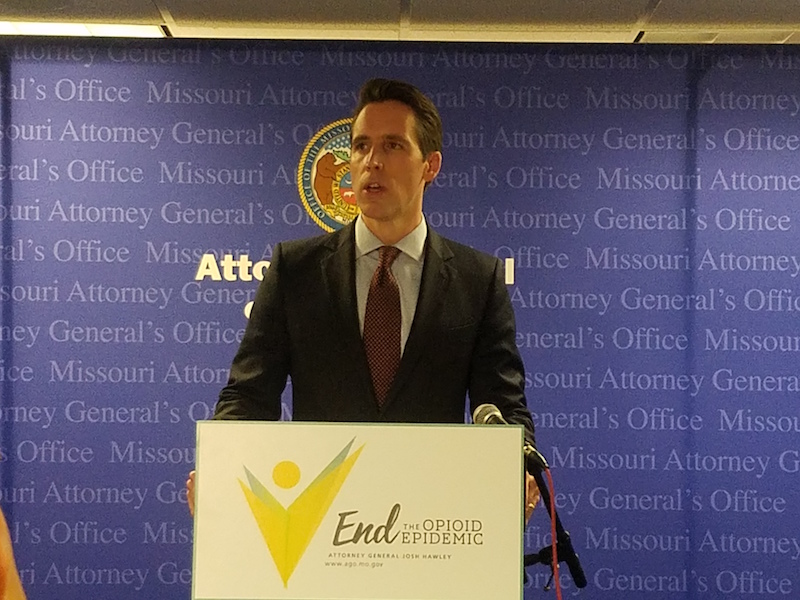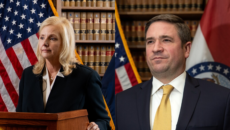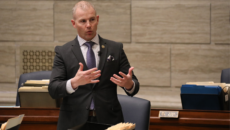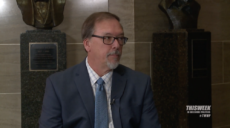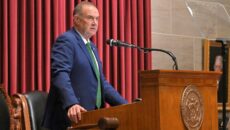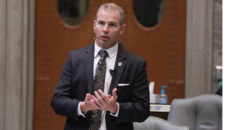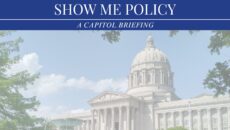Attorney General also remarks on PDMP
JEFFERSON CITY, Mo. – Missouri attorney general Josh Hawley has issued three civil investigative demands to the three drug distributing companies – Amerisource Bergen Corporation, Cardinal Health Inc., and McKesson Corporation. Combined, these three companies made more than $400 billion last year and account for about 90 percent of the nation’s drug distribution market. Such an action has similar legal powers to a subpoena that would legally compel these companies to turn over documents related to his investigation.
“There is evidence to suggest that these drug distributors have played an active role in directly and wrongfully facilitating opioid abuse,” Hawley said. “Among other facts, the sheer volume of opioids that they have delivered to multiple locations is inherently suspicious. The evidence suggests that these companies chose to look the other way oversupply pharmacies and make millions of dollars in profits”
Around midday on October 31, attorney generals in New Jersey, Louisiana, and Ohio have made similar messages to sue pharmaceutical companies producing or involved with the production of opioid painkillers.
Federal and state law stipulates that drug distributors must report any suspicious activity and Hawley hopes that his actions will reveal the companies’ alleged wrongdoing. “The companies have the opportunity to exonerate themselves if this is not correct. They need to cooperate with us fully,” he said.

One of the key issues of his investigation is to determine whether drug companies have downplayed the addictive effects of such drugs for years.
According to Hawley, Missouri is the only state in the county to attempt to hold pharmaceutical companies accountable from attorney general’s office and not hiring outside counsel. In September, Missouri joined 40 other states to issue subpoenas to makers and distributors of opioid painkillers. In 2015, 500 Missourians died from opioid overdoses or from complications from the drug. Missourians have been dying at rates of 160 percent of the national average.
Hawley believed that in order to reduce the amounts of Missourians dying from opioids, the Show-Me State must implement a Prescription Drug Monitoring Program (PDMP). Missouri is still the only state in the country without one.
“I think we need a PDMP in this state,” he said. “The legislature should pass a PDMP. We need one in the state of Missouri.”
In June, he filed a lawsuit against the three largest manufacturers of opioids, Endo Pharmaceuticals, Purdue Pharma, and Janssen Pharmaceuticals. Since then, several companies have filed to dismiss his suit and emphasized that his Tuesday actions are not related to his ongoing lawsuit.
“We welcome the opportunity to settle things in court and to litigate this because we feel we are absolutely in the right. The evidence is very strong. Absolutely, we feel we have the facts,” he said. “We feel very confident that we have facts that show that these manufacturers deliberately engaged in a multi-year marketing campaign to doctors and also to consumers, in which they misrepresented the nature of these drugs.”
In March, U.S. Senator Claire McCaskill decided to lead an investigation from Congress into the opioid producing companies to investigate the tactics used by drug company representatives to influence physicians to prescribe their drugs.
Hawley acknowledged that he had not spoken with McCaskill’s office, but welcomes any and all support.
“I have not spoken with her office on this. We welcome folks who are trying to take action on this, or at least talk about it,” Hawley said of his U.S. Senate opponent. “We want to do more than just talk about it. We want to act and that’s why we’re acting today in a significant fashion.”
His actions came at a germane time as the President of the United States declared only days ago that the opioid epidemic would be a public health emergency. However, Trump did not file a national declaration that would officially make it a public health crisis and would free up national funds. Hawley was not opposed to the President’s actions.
“It’s a good first step. Declaring it a national public health emergency – I think was the language of the White House – is certainly true. Those of us who are here fighting on the ground, we’re grateful for all the help we can get,” Hawley said. “I want to be grateful for what the White House is doing and say this is good.”
